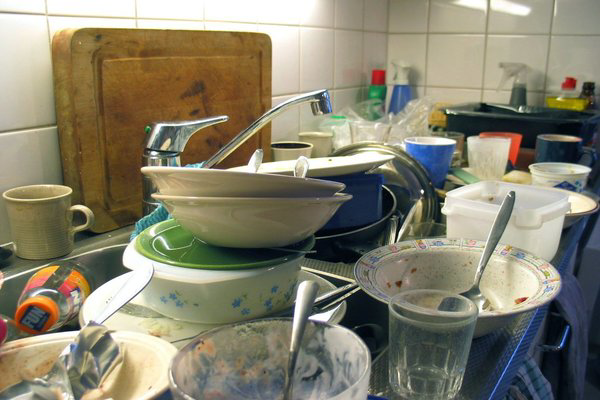A coworking space is coworkers second home
Keeping any shared space clean, organised, secure and comfortable can be an issue for those who occupy it. When talking about a coworking space, the problem will only get worse if the manager of the space doesn’t prevent this from the beginning; especially when the community grows.
The coworking space is your members’ second home as they spend most of their time there working, eating and relaxing. The venue provides common spaces that members have to take care of; otherwise, co-habitation problems may arise. The environment of a coworking space defines the community and it, therefore, has to be cared for by members of the community.
The most common co-habitation issues in a coworking space occur when the community doesn’t care about cleaning, security and noise.
Cleaning
Especially in the kitchen, fridge and bathrooms. Place signs everywhere to remind members to wash the glasses, cups and plates they use or the kitchen sink will always be full of dirty dishes. Remind them to remove the food they leave in the fridge at the end of the week or do it yourself if they don’t do it; otherwise, the food inside will rot. Remind them also to take back the Tupperware that they bring for lunch, or you will collect hundreds at them by month end. The bathroom could become a very delicate problem if isn’t clean; remind members to keep it neat and to flush the toilet at all times… This may sound unbelievable but it does happen. Let them know that in addition to you providing a regular cleaning service to keep the space neat and tidy, daily cleaning is their responsibility.
Security
Most coworking spaces are 24/7, which means that members go in and out all the time with a security code throughout the day. Make members aware that computers, other devices and belongings can be stolen if they don’t ensure that the space is locked when they leave. Let members know that security is their responsibility too; your security cameras and controls are not enough if they don’t take care.
Noise
A coworking space brings together professionals and companies working independently. Some of your members need to focus and concentrate on their work without being disturbed for anything; others, such as teams, need to speak at all times. It’s better to place teams in rooms or different areas, separated from professionals looking for silence. On the other hand, all members have meetings or Skype calls with customers, or even listen to music while they work. Will you allow them to do all of these activities in the same working area, or will you provide different rooms or areas to do so? In order to create a pleasant working environment for everybody, you must clearly define the rules on how and where to perform each action; taking into account the personalities within the community.
Co-habitation rules and principles
So, the relationship between your coworkers and your coworking space should be well-defined in order to maintain a good, ambient, clean and organised workplace. Coworking is a hospitality business; your duty as a coworking manager is, therefore, to provide the best working experience for your community.
Write up a set of rules and working principles, both on an individual level (each coworker/team in relation to their working space), and communal areas for the whole community. Share these with them, ask for their opinion and make them contribute too; coworking spaces are made better when you and the community all work together.
Inform your new members where the rules for occupying the space and co-living are posted, so that anybody is able to consult them whenever they like.
This could also include some sanctions or measures that the coworking space employs should the rules set out above be broken.
Some of the points that this document should cover are:
- Opening times and access information;
- Coworking liability rules for stolen items;
- Rules of use of the meeting rooms (communal space).
- Use and care of the space and regarding the rest of the community;
- Consent to modify the design and personalise the workspace;
- Use of the communal areas;
- Use of the logo or brand image of the coworking space in communications;
- Confidentiality protocol;
- The policy for meeting with clients in the workspace;
- The policy regarding pets accessing the coworking space;
- Emergency plan in the event of an evacuation;
- Mail collection/creating a fiscal domicile;
- Silence, music, and noise.
